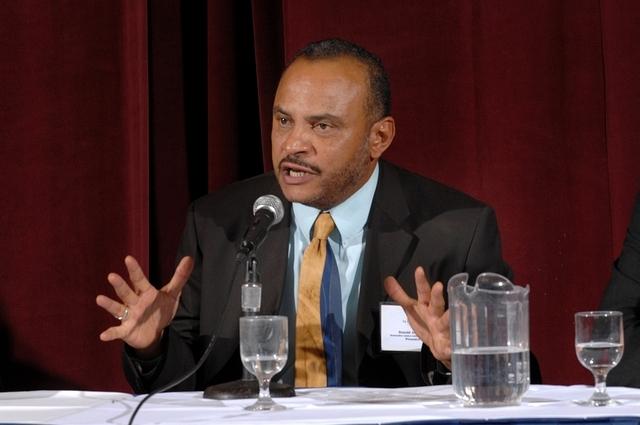A Dane County pilot program designed to address racial disparities throughout the criminal justice system is underway, and already garnering regional attention.
The Community Restorative Courts is a restorative justice program that was implemented in south Madison in July. Though there are other restorative justice systems in place in Dane County, the exact set up of the courts is unique in the nation, Ronald Johnson, CRC coordinator, said.
Minors aged 12-16 in Madison are already often referred to restorative justice courts, but the CRC pilot program is designed for youth ages 17 to 25 — which is a crucial age for giving second chances, Johnson said.
“Character development isn’t complete until around age 25,” Johnson said. “People make bad choices. So when someone is given a second chance, most people will take advantage of that.”
The CRC offers an alternative to the criminal justice system for youth that have received minor charges, such as a city ordinance violation. Madison Police Department refers that person to the CRC, where they work with trained volunteers, called peace-makers. The perpetrator, peace-makers and the victim talk openly before a sentence is determined. Sentences frequently contain requirements like community service, apology and restitution, Johnson said.
If the offender goes through all the program components successfully, then the charges are dropped, Johnson said.
Typically, when someone commits a crime, their information is recorded alongside the offense in a countywide system. This system is a public record, which allows potential employers or landlords to check the history of any applicants, Johnson said.
For many individuals, being in this system can result in major problems when finding employment or housing, Johnson said. With completion of the CRC program, no information is recorded in that system, allowing participants to take responsibility for their actions without damaging the rest of their lives, he said.
Diverting offenders, especially young adults, from the traditional criminal justice system typically has better long term results for the perpetrators, Lynn Green, Dane County human services director, said.
“If you can hold them accountable for their actions but divert them from the formal court system, everybody is more successful,” Green said.
Once the program is complete, the CRC helps the offenders make connections for jobs, housing or education. The CRC has many connections throughout Dane County with various social services, which can help past offenders get into a better situation. The CRC also works with a number of University of Wisconsin interns, primarily graduate students in social work, who help to connect participants with resources and services, Johnson said.
A community that is supportive of the CRC is crucial in terms of making the process effective, Green said.
The volunteers that help make the program successful all go through extensive training in restorative justice philosophies and techniques, as well as victims’ rights, Johnson said.
This program is beneficial from both a fiscal and a community standpoint. Incarceration is expensive, and for many people it still results in crimes after release, Green said. From a community standpoint, this type of system may help to decrease the number of repeat offenders and actually make neighborhoods safer, she said.
The pilot program will likely last close to a year before being assessed for possible expansion. Eventually, the program would ideally expand from south Madison to the entire county, Johnson said. The CRC has always received calls from other cities, such as Milwaukee, looking to replicate the success the program is experiencing.
“We hope to be able to make a dent in the racial disparities issue,” Johnson said. “Dane County is leading the country in arrests and incarceration, especially of black males. We hope that we can turn that around.”












